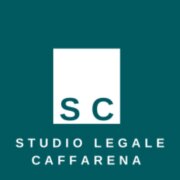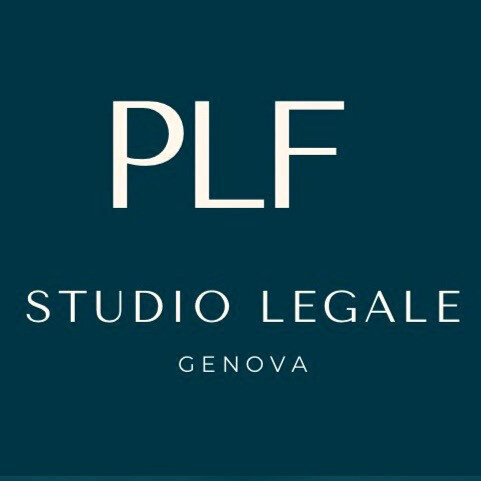Best General Litigation Lawyers in Genoa
Share your needs with us, get contacted by law firms.
Free. Takes 2 min.
List of the best lawyers in Genoa, Italy
About Litigation Law in Genoa, Italy
Litigation in Genoa, Italy refers to the legal process of resolving disputes between individuals, companies, or institutions in the courts of law. As a major Italian city with a complex commercial and civil environment, Genoa's litigation system operates under the broader Italian civil law tradition. Legal proceedings can involve civil, commercial, labor, administrative, and even maritime disputes given Genoa’s history as a port city. The litigation process is governed primarily by the Italian Code of Civil Procedure, with local courts hearing cases that originate within the Liguria region.
Why You May Need a Lawyer
People in Genoa may require the assistance of a litigation lawyer for a variety of reasons, including:
- Disputes over business contracts or financial transactions
- Property and real estate conflicts, such as ownership or rental matters
- Inheritance and succession cases
- Employment and labor disputes with companies or institutions
- Personal injury claims or accidents
- Maritime or shipping disagreements, which are common in Genoa
- Civil liability and compensation claims
- Administrative challenges against local authorities
- Debt recovery actions
- Complex situations involving Italian, EU, or international parties and laws
A skilled lawyer helps navigate procedures, ensures compliance with local laws, and increases the likelihood of a favorable outcome.
Local Laws Overview
Litigation in Genoa is subject to Italian national laws, but local practices and court procedures can impact outcomes. Key aspects include:
- Court Structure: The main courts in Genoa are the Tribunale di Genova (Civil Court), Giudice di Pace (Peace Judge for minor cases), and the Corte d’Appello (Appeal Court).
- Language: Proceedings are conducted in Italian. Official documents and testimony may require translation for non-Italian speakers.
- Legal Representation: Parties are generally required to engage an attorney (avvocato) for formal proceedings.
- Procedural Rules: The Italian Code of Civil Procedure governs timelines, evidence submission, hearings, and appeals.
- Mediation: In certain disputes, including commercial and property matters, parties must attempt mediation before proceeding to trial.
- Costs: Legal proceedings can incur court fees, legal expenses, and in some cases, the losing party may be ordered to pay the other's costs.
- Appeals: Most judgments may be appealed, but strict deadlines apply.
Frequently Asked Questions
What types of cases do litigation lawyers in Genoa handle?
Litigation lawyers in Genoa handle a broad range of cases, such as civil disputes, commercial contract breaches, real estate matters, inheritance issues, employment conflicts, and maritime cases.
Do I need to speak Italian to go to court in Genoa?
Court proceedings are conducted in Italian. If you do not speak Italian, you will need a translator and must ensure that all documents are properly translated and certified for legal validity.
How long does a typical litigation case take in Genoa?
Timelines vary depending on the complexity of the case. Simple disputes may resolve within months, while complex or appealed cases can take several years.
What is the role of mediation in Genoa litigation?
In many civil and commercial disputes, parties are legally required to attempt mediation before the court will hear the case. This alternative dispute resolution can sometimes settle matters quickly and affordably.
What are the costs involved in litigation in Genoa?
Litigation costs typically include filing fees, lawyer’s fees, court expenses, expert witness fees, and sometimes, compensation for the other party's expenses if you lose the case.
Can foreigners participate in litigation in Genoa courts?
Yes, foreigners can be parties to litigation. However, additional steps, such as document legalization and translation, may be needed for foreign participants.
What is the process for starting a court case in Genoa?
Usually, the plaintiff files a formal “atto di citazione” (statement of claim) with the competent court, serves notice to the defendant, and then follows the procedures set out in the Italian Code of Civil Procedure.
Can I represent myself in court?
While individuals can represent themselves in very minor cases (Giudice di Pace), legal representation by a qualified lawyer is generally required for all significant litigation matters.
How do appeals work in Genoa?
If you disagree with a court’s decision, you can appeal to a higher court within a fixed time limit (generally 30 days from notification of judgment). The appellate court reviews the decision for legal or procedural errors.
How can I find a reputable litigation lawyer in Genoa?
You can search through the local Bar Association (Ordine degli Avvocati di Genova), seek referrals from trusted parties, or access online directories specific to the Genoa legal market.
Additional Resources
If you need further information or support regarding litigation in Genoa, consider these resources:
- Ordine degli Avvocati di Genova: The official Bar Association where you can find qualified lawyers.
- Tribunale di Genova: The main civil and criminal court in Genoa, handling most litigation matters.
- Giudice di Pace di Genova: For smaller civil cases and mediation.
- Sportello del Cittadino: Citizen’s helpdesk at local government offices for general legal guidance.
- Consiglio Nazionale Forense: National legal body providing ethical and professional standards for lawyers in Italy.
Next Steps
If you believe you need legal assistance for litigation in Genoa, here’s how to proceed:
- Define your legal issue clearly and gather all relevant documents, contracts, and correspondence.
- Seek an initial consultation with a local litigation lawyer to discuss your case and viable options.
- Verify the lawyer’s qualifications through the Ordine degli Avvocati di Genova.
- Inquire about fees, payment structures, and expected timelines before committing to representation.
- If required, initiate mediation or other alternative dispute resolution procedures.
- Follow your lawyer’s advice closely and ensure open communication throughout the process.
A qualified legal professional will guide you through the local procedures and represent your interests efficiently. Acting promptly and responsibly often improves the chances of a satisfactory result in litigation matters.
Lawzana helps you find the best lawyers and law firms in Genoa through a curated and pre-screened list of qualified legal professionals. Our platform offers rankings and detailed profiles of attorneys and law firms, allowing you to compare based on practice areas, including General Litigation, experience, and client feedback.
Each profile includes a description of the firm's areas of practice, client reviews, team members and partners, year of establishment, spoken languages, office locations, contact information, social media presence, and any published articles or resources. Most firms on our platform speak English and are experienced in both local and international legal matters.
Get a quote from top-rated law firms in Genoa, Italy — quickly, securely, and without unnecessary hassle.
Disclaimer:
The information provided on this page is for general informational purposes only and does not constitute legal advice. While we strive to ensure the accuracy and relevance of the content, legal information may change over time, and interpretations of the law can vary. You should always consult with a qualified legal professional for advice specific to your situation.
We disclaim all liability for actions taken or not taken based on the content of this page. If you believe any information is incorrect or outdated, please contact us, and we will review and update it where appropriate.













